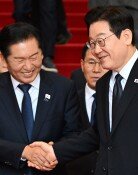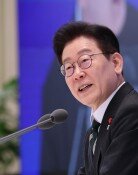[Opinion] Party Dues
People often describe political parties as money-eating monsters, which means parties often spend astronomical sums of money. Therefore, each party has always financed its spending not only with government assistance, support funds, and party dues but also with black money. The proportion of party dues was not big. Rank-and-file party members usually were not keen on paying dues, which was not considered a problem. It was common that candidates for party-wide elections paid dues on behalf of others when the eligibility of party members to cast ballots was at issue, which was part of an effort to embrace members to their side.
However, the proportion of party dues in total party expenditures is increasing, as politics-related laws have become stricter, and transparency in party finance is emphasized. Each party is keen on securing more real members, saying, Only those who pay dues have the right to vote and be elected. The National Election Commission announced that the ruling Uri Party collected 10.8 billion won in party dues last year, which accounted for 29.7 percent of its aggregate revenue. The figure was 4.7 billion won (5.6 percent) for the Grand National Party and 6.6 billion won (55.1 percent) for the Democratic Labor Party. Against this backdrop, it is safe to say that there are larger numbers of enthusiastic members in the Democratic Labor Party.
Rank-and-file members pay an average of 1,000 to 5,000 won in monthly dues, although the amount varies depending on the party. Party officials are supposed to pay from tens of thousands of won to two to 2.5 million won in monthly dues, depending on their posts. President Roh Moo-hyun is reported to have arranged an automatic transfer of two million won per month to the ruling Uri Party, as a prime member of the party. This amount must be miniscule compared with the sums that former presidents had to pay as party chairmen.
Uri Party representative Yoo Shi-min has been involved in a controversy over party dues, as he became a candidate for party chairman. Reports have it that he belatedly paid seven million won in party dues which had been overdue over five months last year, only after the overdue sums emerged as a problem. His rival candidate argues that Yoo is not eligible for becoming a candidate in that the party rules state that the membership of those who fail to pay their dues for at least three months are suspended. Yoo apologized, saying that it was his carelessness and mistake, which strikes one as a lame excuse. It is hard for him to avoid criticism of being guilty of a double standard, as he has placed particular emphasis on being a member who pays dues. It is fair to say that having a notional morality that blames others without reflecting on oneself eventually serves as a boomerang.
Song Young-eon, Editorial Writer, youngeon@donga.com







